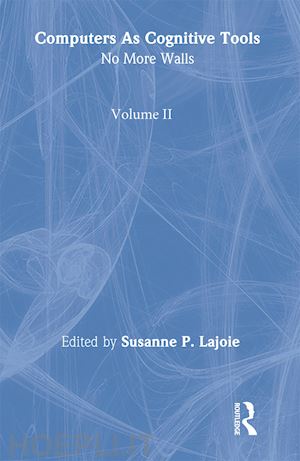Contents: Preface. S.P. Lajoie, Introduction: Breaking Camp to Find New Summits. Part I: Technologies for Supporting Knowledge Building in Distributed Learning Contexts. F.N. Akhras, J.A. Self, Modeling the Process, Not the Product, of Learning. S.J. Derry, S. Gance, L.L. Gance, M. Schlager, Toward Assessment of Knowledge-Building Practices in Technology-Mediated Work Group Interactions. J. Greer, G. McCalla, J. Cooke, J. Collins, V. Kumar, A. Bishop, J. Vassileva, Integrating Cognitive Tools for Peer Help: The Intelligent Intranet Peer Help-Desk Project. B.Y. White, T.A. Shimoda, J.R. Frederiksen, Facilitating Students' Inquiry Learning and Metacognitive Development Through Modifiable Software Advisers. B. Sugrue, Cognitive Approaches to Web-Based Instruction. Part II: Cognitive Tools That Foster New Forms of Representation. D.H. Jonassen, C.S. Carr, Mindtools: Affording Multiple Knowledge Representations for Learning. J. Erickson, R. Lehrer, What's in a Link? Student Conceptions of the Rhetoric of Association in Hypermedia Composition. B. Harper, J. Hedberg, B. Corderoy, R. Wright, Employing Cognitive Tools Within Interactive Multimedia Applications. S.P. Lajoie, R. Azevedo, Cognitive Tools for Medical Informatics. D.L. Schwartz, G. Biswas, J.D. Bransford, B. Bhuva, T. Balac, S. Brophy, Computer Tools That Link Assessment and Instruction: Investigating What Makes Electricity Hard to Learn. V.J. Shute, L.A. Torreano, R.E. Willis, DNA: Toward an Automated Knowledge Elicitation and Organization Tool. Part III: Epilogue. B. du Boulay, Fallible, Distractible, Forgetful, Willful, and Irrational Learners. E.B. Mandinach, H.F. Cline, It Won't Happen Soon: Practical, Curricular, and Methodological Problems in Implementing Technology-Based Constructivist Approaches in Classrooms. Part IV: Discussion. A. Lesgold, What Are the Tools For? Revolutionary Change Does Not Follow the Usual Norms.











